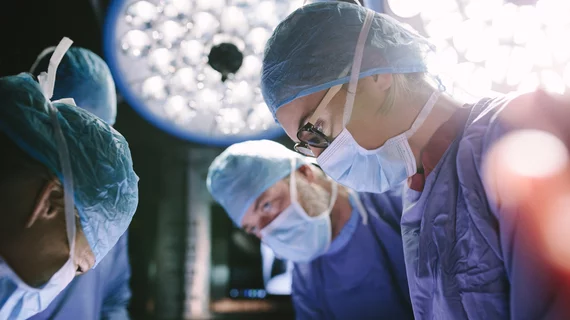Brain-NET predicts surgeons' capabilities based on neuroimaging data
A new deep learning approach can pull brain optical imaging data to accurately predict how proficient a physician’s surgical motor skills are, Rensselaer Polytechnic Institute researchers recently reported.
Brain-NET, as it’s known, is the work of engineers at the Troy, New York, institution, and surgery experts from the University at Buffalo Jacobs School of Medicine & Biomedical Sciences.
According to a new study published in IEEE Transactions on Biomedical Engineering, the artificial intelligence was quicker and more accurate than traditional prediction models, most notably when tested using larger datasets.
Xavier Intes, PhD, a professor of biomedical engineering at Rensselaer, who led this research, said their platform may be foundational for creating a more efficient surgeon certification and training process.
"If you can get the measurement of the predicted score, you can give feedback right away," he added in an Aug. 11 statement. "What this opens the door to is to engage in remediation or training."
Their work builds upon earlier research from the team that showed Brain-NET could assess a doctor’s surgical motor skills by using brain activation signals harnessed during optical imaging.
For their current study, Intes et al. showed the platform accurately predicted performance scores in a standardized bi-manual motor task used during surgical certification, notching receiver operating characteristic curve and area under the curve scores of 0.91.
Residents in the U.S. need to pass the Fundamentals of Laparoscopic test showing they can proficiently manipulate laparoscopic tools before earning their general surgery certification. And brain-NET can help trainees receive quick feedback and improve their FLS score, Intes and colleagues concluded.
“These results establish that functional near-infrared spectroscopy-associated with deep learning analysis is a promising method for a bedside, quick and cost-effective assessment of bi-manual skill levels,” the authors wrote.

